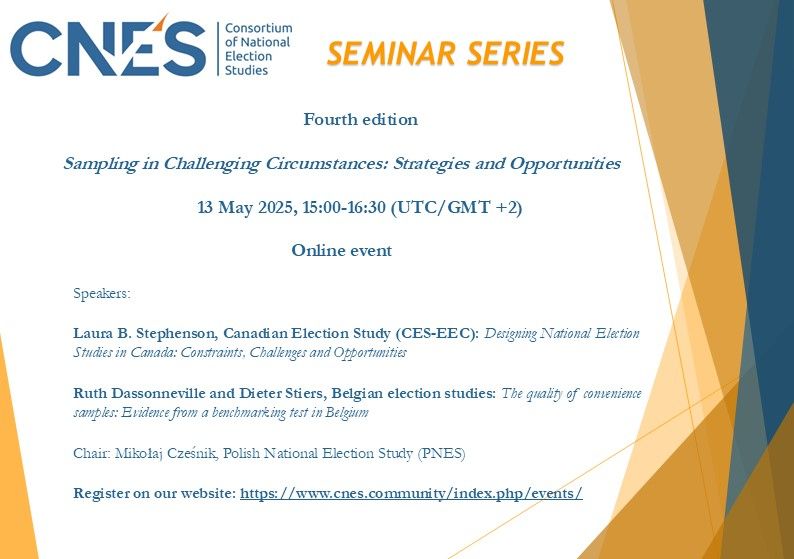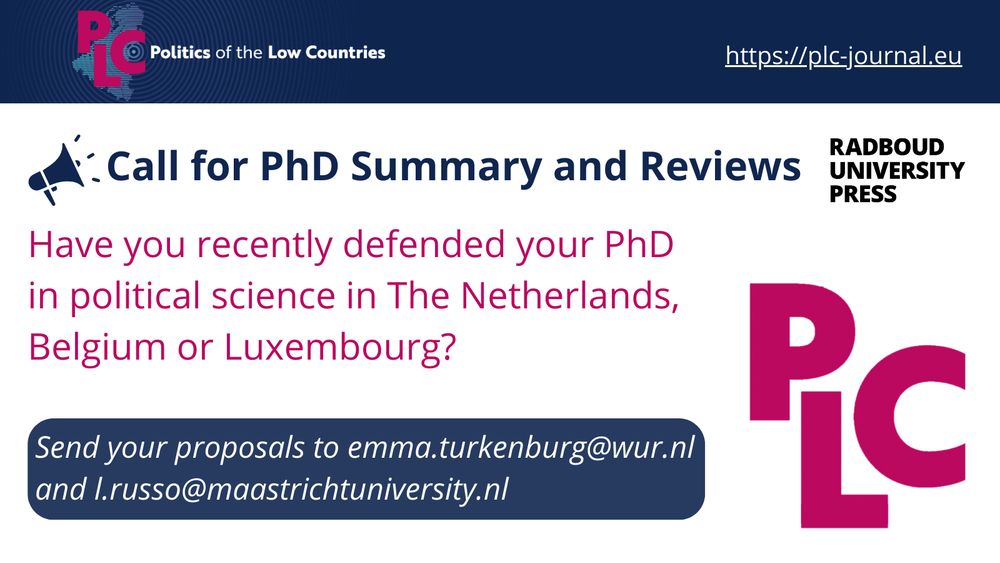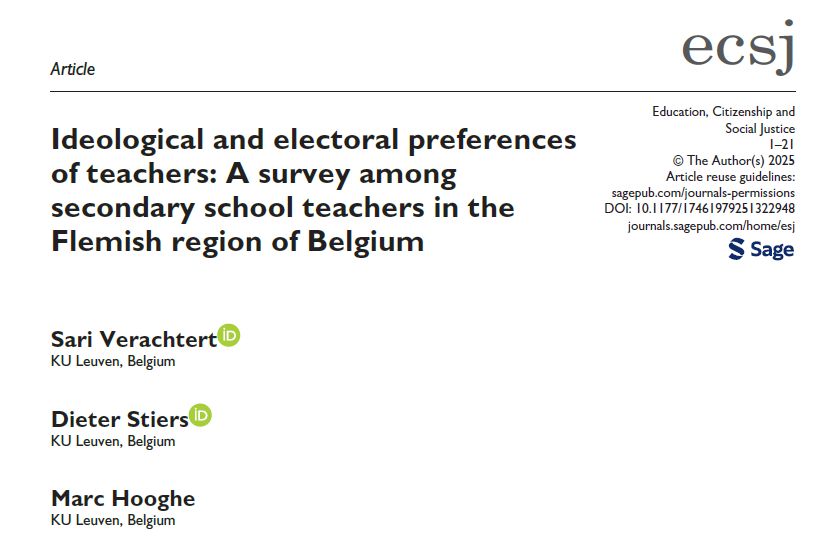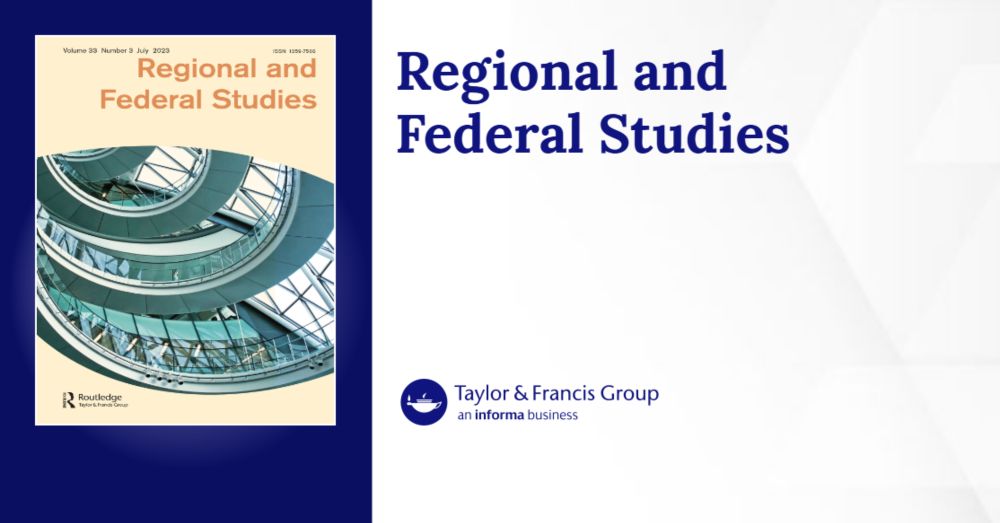Post-doctoral researcher in political science at KU Leuven (Belgium). Studying elections, parties, and public opinion.
Reposted by Bram Wauters, Dieter Stiers

📆 Het openingscollege gaat door op 2 dec om 17u30
Voor meer info en om in te schrijven voor dit *niet te missen* college, zie hier soc.kuleuven.be/afdeling-pol...


Reposted by Dieter Stiers, Bjørn Høyland
Looking forward to welcoming @bjornhoyland.bsky.social in Leuven on Monday 20 October. If you're around and would like to attend, more info is here 👇
soc.kuleuven.be/afdeling-pol...
👀 Interested in reading more about sibling parties and electoral behaviour in Belgium? Check out the post below 👇
Thank you to my supervisors @marchooghe.bsky.social and @dieterstiers.bsky.social for their guidance
📝 Party Families as a Cross-Cutting Cleavage on the Individual Level: The case of Belgium
👤 By Steven De Keyser (@kuleuvenuniversity.bsky.social, Voting and Democracy Research Group)
🔗 plc-journal.eu/article/view...
Reposted by Dieter Stiers
📝 Party Families as a Cross-Cutting Cleavage on the Individual Level: The case of Belgium
👤 By Steven De Keyser (@kuleuvenuniversity.bsky.social, Voting and Democracy Research Group)
🔗 plc-journal.eu/article/view...

👀 Interested in reading more about sibling parties and electoral behaviour in Belgium? Check out the post below 👇
Thank you to my supervisors @marchooghe.bsky.social and @dieterstiers.bsky.social for their guidance
Starting today, we'll feature two sections each week to provide more information about the conference.
🔝 This week: Electoral + Voting Behaviour & Climate Politics
▶️ Electoral + Voting Behaviour
🧵
💻 Focus: NLP + ML + political text analysis
🗳️ Project: ERC DEMO-LIES (disinformation in democracies)
🌍 Location: Antwerp, 🇧🇪
📅 Deadline: 16 Oct 2025
www.uantwerpen.be/en/jobs/vaca...
Reposted by Ruth Dassonneville, Dieter Stiers

Reposted by Ruth Dassonneville, Dieter Stiers, Romain Lachat
Reposted by Dieter Stiers

buff.ly/tBe6gLG
@polstudiesassoc.bsky.social @uoypolitics.bsky.social @sagepub.com
Reposted by Klaus H. Goetz


Reposted by Dieter Stiers, Anna Kern

Info on the position and how to apply 👉 www.kuleuven.be/personeel/jo...
Please share with interested students who would like to move to beautiful Leuven!



- on ideological stereotypes supervised by me and
@robindevroe.bsky.social www.ugent.be/en/work/scie...
- on losers' consent supervised by @annakern.bsky.social
www.ugent.be/en/work/scie...
Join research group @gasparugent.bsky.social in beautiful Ghent
Info on the position and how to apply 👉 www.kuleuven.be/personeel/jo...
Please share with interested students who would like to move to beautiful Leuven!

bsky.app/profile/rdas...

Info on the position and how to apply 👉 www.kuleuven.be/personeel/jo...
Please share with interested students who would like to move to beautiful Leuven!

#PhDOpportunity #PhDGraduates #PoliticalScience #AcademicPublishing #PhDResearch #EarlyCareerResearchers
🧵
Reposted by Dieter Stiers

journals.sagepub.com/doi/10.1177/...
Reposted by Marc Hooghe, Dieter Stiers, Davide Vampa

"Who decides what are second-order elections? A study of ticket-splitting in simultaneous federal and regional elections in Belgium" by @dieterstiers.bsky.social and @marchooghe.bsky.social
www.tandfonline.com/doi/full/10....

